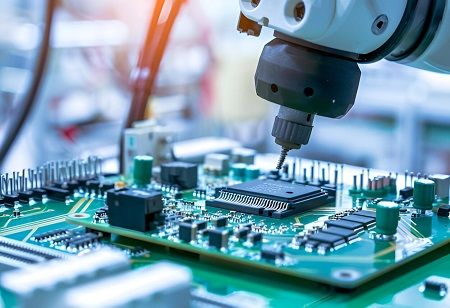
- TSMC delays second Japan plant amid U.S. tariff pressures.
- Shifts focus to $100B investment in U.S. chip production.
- Global chip supply concerns drive strategic expansion moves.
Washington's tariffs on imported chips have led Taiwan Semiconductor Manufacturing Co. to delay building a second facility in Japan and accelerate its expansion in the U.S.
In 2024, Taiwan Semiconductor announced plans to construct a second facility in Kumamoto prefecture, Japan, as part of a $20 billion investment project. According to the Wall Street Journal on Friday, the Japanese government committed more than $8 billion in support.
Taiwan Semiconductor is a major supplier for Nvidia Corp and Apple Inc. The initial plant started chip manufacturing last autumn, catering to significant clients such as Toyota Motor.
Taiwan Semiconductor initially intended to start building the second site at the beginning of this year. However, Chairman C.C. Wei mentioned in June that significant traffic in the area had led to a minor delay. Japan has not provided any official confirmation about the delay.
Also Read: Malaysia, Taiwan Strengthen Trade Ties in ICT and Semiconductors
Sources knowledgeable about the situation are now indicating that the schedule for the second plant is still unclear, with additional delays probable. The report indicates that this challenge is difficult for Japan, with its economy facing hardships due to President Trump's 25% tariffs on steel and automobiles. Still, the government anticipates that the factory's production timeline and output goals will stay the same.
The U.S., Japan, Europe, and Taiwan China provided financial backing for the Taiwanese contract chipmaker's worldwide growth after the 2020 pandemic highlighted the critical role of the semiconductor industry, essential for electronic devices from smartphones to vehicles.
The pandemic-induced disruption of the global semiconductor supply chain led companies to enhance their semiconductor resources to prevent a semiconductor chip shortage. In March, Wei revealed a further $100 billion investment in U.S. chip production in addition to the $65 billion disclosed in April 2024.

